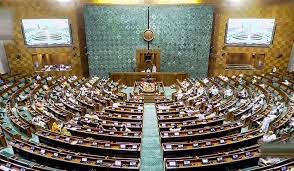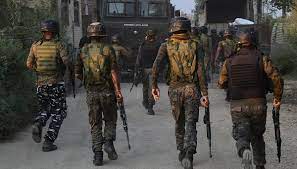With 454 votes in favor, the Lok Sabha passes the women’s reservation bill with bipartisan support
The historic Women Reservation Bill was approved by the Lok Sabha on Wednesday with 454 MPs voting in favor, demonstrating a rare instance of bipartisan cooperation.
Only two Lok Sabha MPs opposed the Women Reservation Bill in the voting via slips.
The Women Reservation Bill, officially known as the Constitution (One Hundred Twenty-Eighth Amendment) Bill, 2023, was presented by the Narendra Modi administration on Tuesday.
One-third of the seats in the Lok Sabha and the legislatures of the states and Union Territories (UTs) are to be reserved for women under the Women Reservation Bill.
A two-thirds vote of the members present and voting in the house was necessary for the Women Reservation Bill to succeed since it modifies the Indian Constitution. The Rajya Sabha would need a comparable two-thirds majority in order to enact the measure. Although the Bharatiya Janata Party (BJP), which is now in power, has a simple majority in the Lok Sabha, it lacks a two-thirds majority, thus it was forced to rely on bipartisan support for the legislation.
The Women Reservation Bill will go to the Rajya Sabha after passing the Lok Sabha, and then it will be signed into law by the President of India.
The Lok Sabha was adjourned for the day after the Women Reservation Bill was approved. On Thursday, the procedures would begin again at 11 a.m.
In the years leading up to the Special Session of the Parliament, parties from all corners of the political spectrum had campaigned for the approval of the Women Reservation Bill, which would have reserved seats for women in the Parliament and state legislatures.
Although there is overwhelming support for the bill in the Lok Sabha and even Congress leader Rahul Gandhi declared his support for it, the opposition parties, including Congress and Rahul, have criticized the bill’s omission of other backward classes (OBCs). Some parties have also voiced opposition to the measure for these and other reasons. Rahul has also criticized the need for a census and delineation in order to execute the reservation.
As a result of the census being conducted shortly after the general elections in 2024, which would be followed by a delimitation exercise, it has been noted that the earliest the women’s reservation may be implemented is in 2029. The seats in the Lok Sabha and the assembly of the states and UTs will be reserved for women after these two requirements have been met.
The United Progressive Alliance (UPA), which was then headed by Congress, presented the Women Reservation Bill earlier in 2008 in the Rajya Sabha, but the bill did not advance in the Lok Sabha. Now that the governing BJP has a comfortable majority in the Lok Sabha and there is also widespread support for the measure in the house, it was anticipated that the bill will pass easily since it has enough votes in its favor.
Before the vote, the measure received the support of the Congress party, the Bahujan Samaj Party (BSP), the Janata Dal-United (JD-U), and the Nationalist Congress Party (NCP) among the Opposition ranks.







